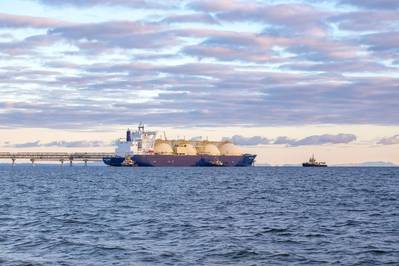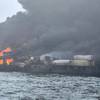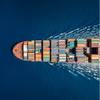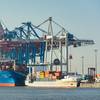New EU Sanctions Could Hit Russian Shipping
The European Union would ban trans-shipment of Russian LNG, the use of EU ports by vessels transporting goods contributing to Russia's war effort and make EU operators more accountable for any sanctions violations, according to a text under discussion.
The text seen by Reuters on Monday covers proposals that would constitute a 14th package of sanctions against Russia over its 2022 invasion of Ukraine now being debated by EU members before it enters force.
According to the proposals presented to EU envoys on Friday, the package will seek to limit Russia's revenues from liquefied natural gas sales by prohibiting the use of EU facilities to trans-ship Russian LNG to third countries.
The proposals also include a ban on the use of EU ports and locks for vessels that contribute to Russia's war effort.
This could include the transport of goods generating significant revenue for Russia, goods or technology used in the defence and security sector or shipment of fuels outside the price cap system.
EU operators would also be held accountable if non-EU entities they own or control flout sanctions. For sensitive goods that are used on the battlefield or are critical to Russia's military, operators would have to have due diligence systems to identify and mitigate risks of exports to Russia, according to the proposal text.
The proposals also include banning political parties, think tanks or media in the EU receiving economic benefits from Russia, and adding Voice of Europe, RIA Novosti, Izvestija and Rossiiskaja Gazeta to the sanctioned media list.
The EU would seek to tighten up bans on flights and road transport of goods for aircraft or trucks owned or controlled by Russians and on the transport of goods. The EU would also place a transaction ban on those using Russia's financial messaging systems outside Russia.
The proposal clarified that rough diamonds imported from Russia before Jan. 1 and polished diamonds imported before March 1 or Sept. 1, according to weight, would not be covered by a ban.
(Reuters - Reporting by Philip Blenkinsop, Editing by Charlotte Van Campenhout and Tomasz Janowski)














